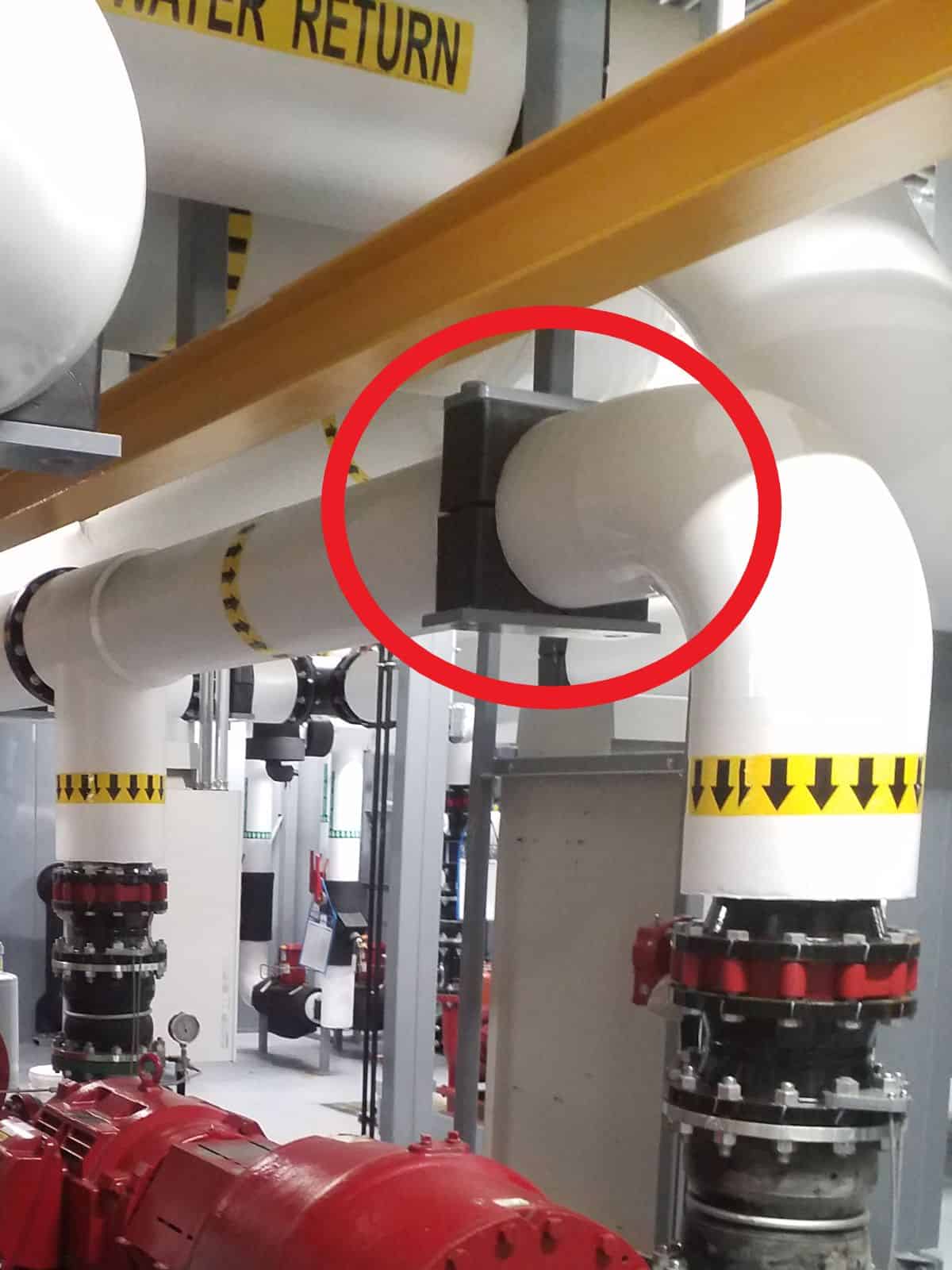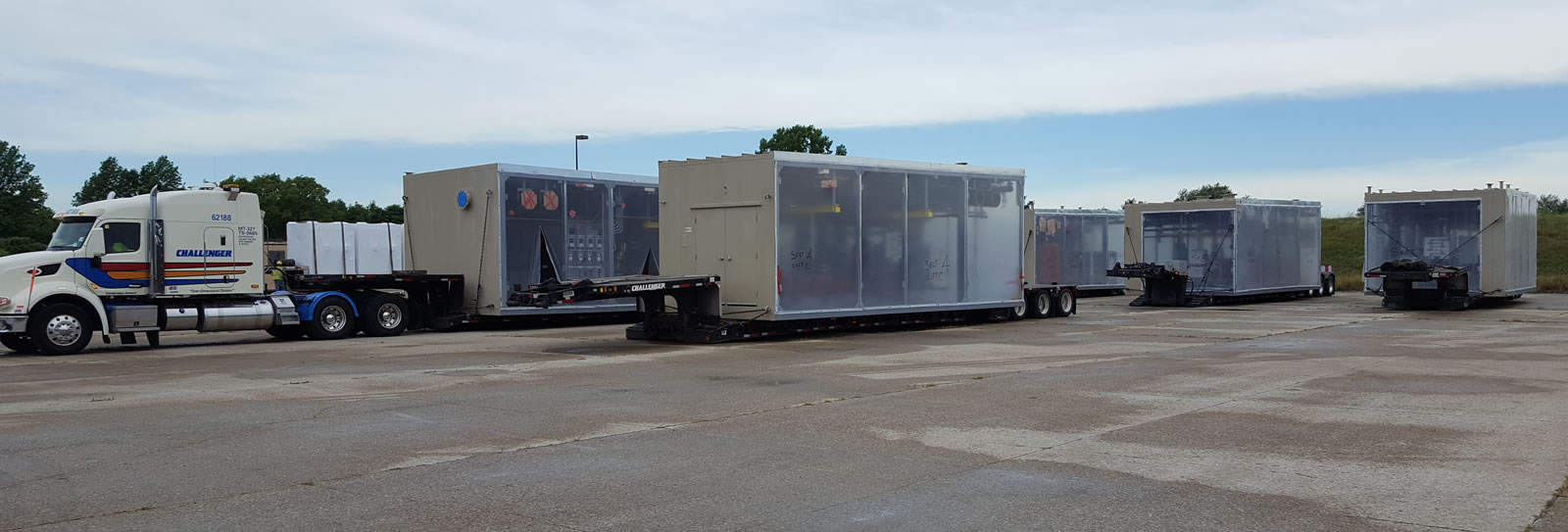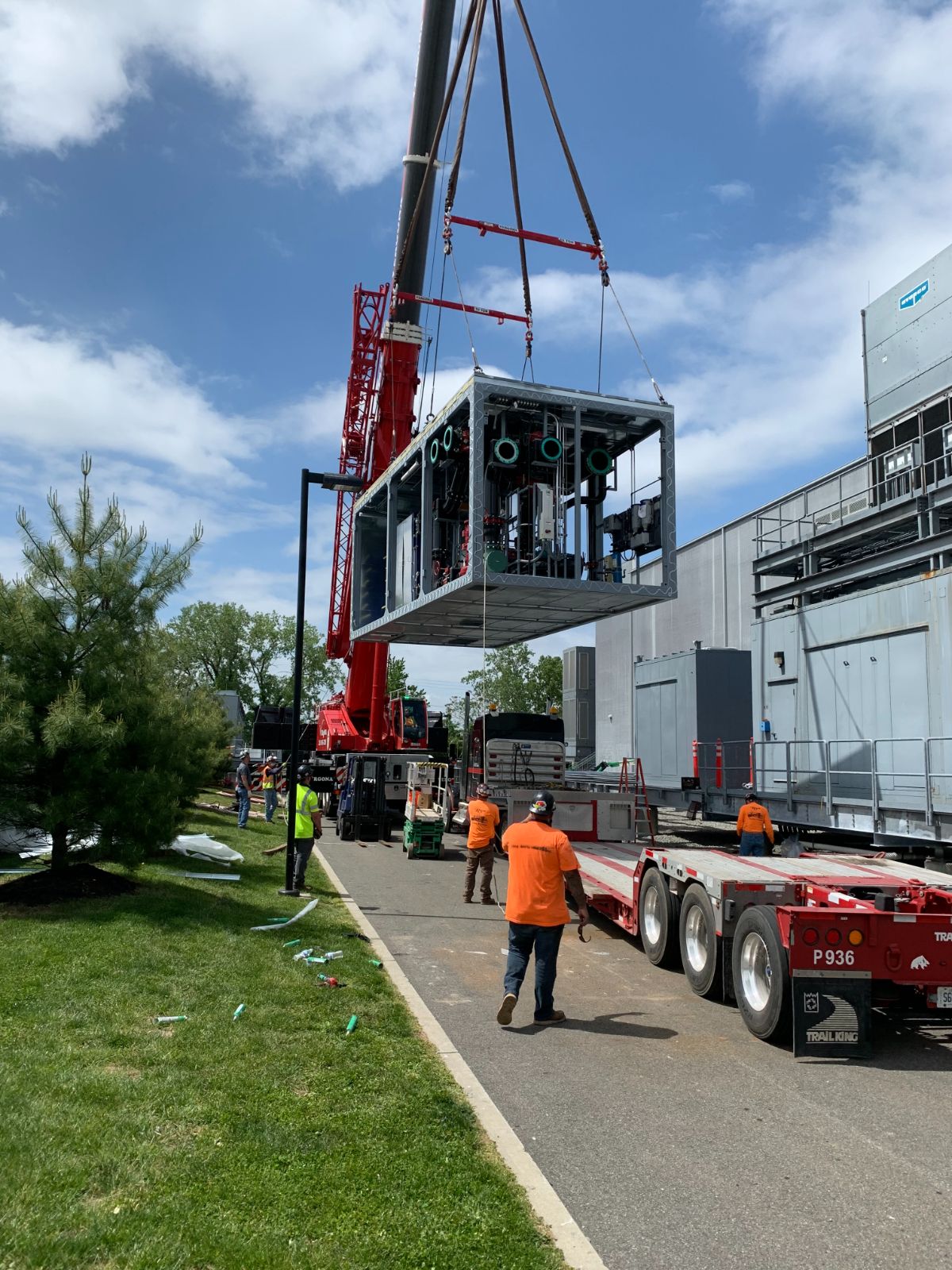The benefits of modular Off-Site Construction (OSC) are well known to those familiar with the approach: specialized design engineering, workflows and production consistencies that are optimized for the factory environment, manufacturing modules and installing equipment in a controlled, indoor environment, and more. However, there is one aspect that can easily be overlooked when considering OSC: shipping.

An example of a heavy-duty pipe hanger that Epsilon utilizes as a standard component on OSC systems.
It’s easy to take for granted how OSC experts effectively design, build, and prep a volumetric prefabricated module for shipping. But consider this: your typical module must travel hundreds if not thousands of miles, before arriving intact and ready to be installed in the field to exacting tolerances.
Shipping complexities and demands are major factors in the overall success of an Off-Site Constructed system. It requires an experienced engineering team that can incorporate the demands of shipping into every design, since the forces exerted on modular package components as they are shipped at highway speeds exceed those experienced during a typical seismic event. Epsilon’s engineering team takes those stresses into account when planning how equipment, piping and conduit are supported and secured within each module.
One ancillary benefit of a system purpose-built for shipping: it’s far more robust than the traditionally built, field assembled equivalent. This contributes to the inherent longevity of any system that is provided using the OSC approach.
There is a lot of excitement in the industry around OSC as a way to achieve cost certainty while accelerating schedules and reducing labor risk. Which of course can lead to new entrants to the marketplace. However, while these new entrants might appear to be qualified to build modular prefabricated systems – perhaps because they currently do so in the field – project teams should seriously consider the qualifications of any firm they want to engage to design and build OSC systems. Shipping expertise is just one of these qualifications.



